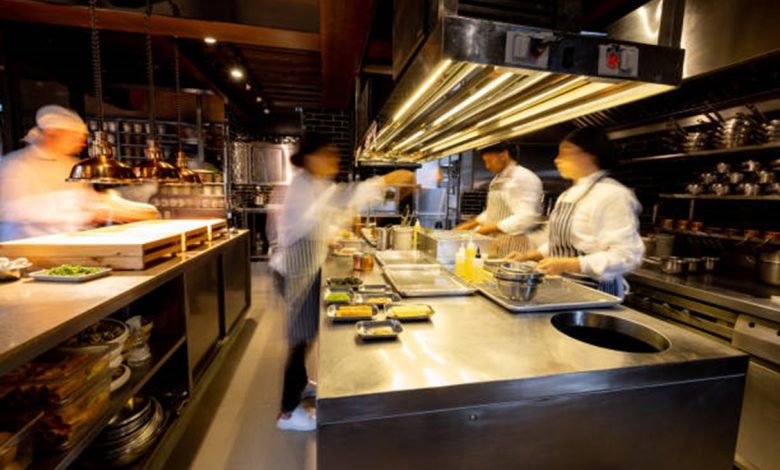Ensure Safety At Your Commercial Kitchen With These Effective Tips

Kitchen: Commercial kitchens are often very busy, especially when your food business is going very well. Due to the chaotic environment and everyone is busy preparing orders, accidents are bound to happen. While small incidents such as minor cuts, burns, or small-scale fires are common in a commercial, it is crucial to be prepared for these incidents so that you can stop them from escalating any further.
Being a manager of a commercial kitchen, you should ensure a safety protocol for your kitchen staff, waiting staff, and diners sitting in your restaurant. Here are essential safety measures that you should ensure in your commercial kitchen.
1. Implement Comprehensive Training Programs
Training is the foundation of a safe commercial kitchen. All kitchen staff should undergo thorough training on food safety, equipment operation, and emergency procedures. This includes understanding how to handle food safely to prevent contamination, knowing the correct temperatures for cooking and storing different types of food, and learning proper techniques for using kitchen equipment.
Regularly scheduled refresher courses help ensure that everyone is up-to-date with the latest safety standards and practices. Effective training reduces the risk of accidents and ensures a smooth, safe kitchen operation.
2. Maintain Cleanliness and Sanitation
A clean kitchen is a safe kitchen. Regular cleaning and sanitation are critical to preventing foodborne illnesses and maintaining a hygienic working environment. Establish a cleaning schedule that includes daily, weekly, and monthly tasks such as cleaning and sanitizing surfaces, utensils, and equipment.
Ensure that staff use proper cleaning agents and follow protocols for sanitizing different areas of the kitchen. Regular inspections help to identify and address any hygiene issues promptly.
3. Ensure Proper Equipment Maintenance
Regular maintenance of kitchen equipment is essential for both safety and efficiency. Equipment such as ovens, fryers, and refrigerators should be serviced according to the manufacturer’s guidelines.
Staff should also be trained to recognize signs of wear and tear and report any issues immediately. Keeping equipment in good working order not only prevents accidents but also extends the lifespan of your appliances, saving money in the long run.
4. Promote Fire Safety (Kitchen)
Fire safety is a critical concern in any commercial kitchen due to the presence of flammable materials and high temperatures. Ensure that all staff are familiar with the location and operation of fire extinguishers and other fire suppression systems. Conduct regular fire drills to ensure everyone knows what to do in case of an emergency.
Install and maintain smoke detectors and fire alarms, and ensure that all exits are marked and unobstructed.
Implement Proper Training: Ensure all kitchen staff are trained in food safety, equipment handling, and emergency procedures to minimize accidents.
Maintain Cleanliness: Regular cleaning of floors, surfaces, and equipment reduces the risk of contamination and prevents slips and falls.
Use Proper Ventilation: Good ventilation helps control heat and odors while preventing harmful fumes from accumulating in the kitchen.
Install Fire Safety Equipment: Equip them with fire extinguishers, smoke detectors, and an accessible emergency exit plan. Regularly inspect these devices to ensure they’re operational.
By following these tips, you can create a safe and efficient working environment for your team.
5. Implement Proper Ergonomics and Safety Practices (Kitchen)
The physical well-being of your kitchen staff is crucial for maintaining a safe working environment. Implement ergonomic practices to reduce the risk of repetitive strain injuries and other musculoskeletal problems. This includes providing non-slip mats, ensuring workstations are at the correct height, and using tools designed to minimize strain.
Encourage staff to take regular breaks and to report any injuries or discomfort immediately. Additionally, enforcing the use of proper attire, such as slip-resistant shoes and protective gloves, helps prevent common injuries like cuts, burns, and slips.




